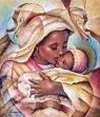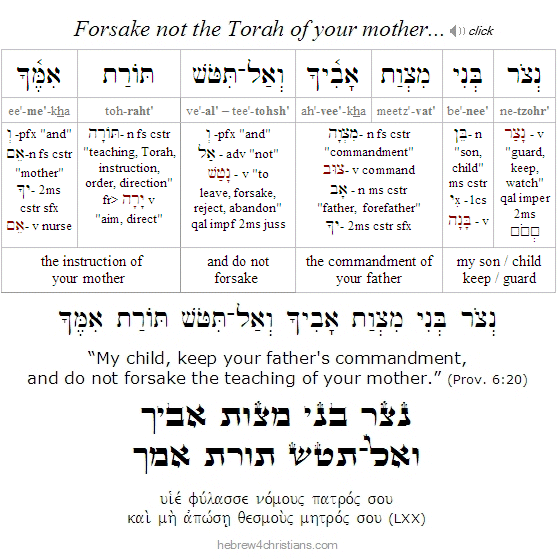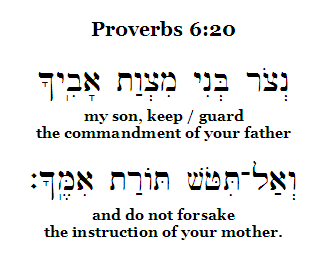|
Despite the custom of greeting an elderly man or woman on their birthday with the wish: ad me'ah ve'esrim shanah (עַד מֵאָה וְעֶשְׂרִים שָׁנָה), "May you live to be 120" (i.e., the age at which Moses died), in Jewish thinking birthdays are not regarded as important as the day of one's death. And since this week's Torah portion concerns the death of the first great matriarch of the Jewish people, I thought it would be worthwhile to discuss some of the wonderful things about this amazing woman of valor....
First of all, in Jewish tradition Sarah Imenu ("Our mother Sarah") is considered one of the four most beautiful women who ever lived (the other three include Abigail, Rahab, and Esther). The Bava Basra says that compared to Sarah, other women looked like "monkeys" (58a). According to Rashi (and others), Sarah was not only beautiful, but entirely modest and innocent. Indeed, by the time she gave birth to Isaac, she was regarded as virtually sinless (Bereshit Rabbah 58:1). The Talmud (Megillah 14a) explains that Iscah was another name for Sarah (Gen. 11:29), meaning "to gaze." This name described both Sarah's ability to gaze into the future by Divine inspiration (Sarah was a great prophetess) and because everyone gazed at her beauty. It is noteworthy that the Hebrew word for face, "panim" (פָּנִים), is written the same way as the Hebrew word for inside, "penim" (פְּנִים), suggesting that Sarah's beauty was both external and internal.
Sarah's modesty and high calling, however, prevented her from viewing herself as the world did. At first she was named Sarai (שָׂרַי, "my princess"), a name apparently given to her from birth. With her great beauty, she surely could have had become a princess of Egypt, even a wife of Pharaoh (Gen. 12:11-20), but she instead chose to suffer as a "stranger and a pilgrim" in this world with her husband. Because of her faith in the promise of the LORD, she was renamed Sarah (שָׂרָה, "princess"), that is, princess of the whole world. As such, Sarah is considered a true heroine of the faith (Heb. 11:11). Regarding Sarah's name change, the Yod (whose numerical value is 10) was "taken" from Sarai and divided into two Heys (whose numerical value is 5). Half was given to form the name Sarah and the other half was given to form the name Abraham (from Abram).
Though Sarah did not hear the Divine Voice that commanded Abraham to leave for an unknown land, she willingly joined her husband and ventured in faith. Along the way, she underwent the same trials that Abraham faced (see the "Ten Trials of Abraham") but she never turned back to the world she left behind.

Indeed, from the time she arrived in Canaan, Sarah was tested and refined by the LORD. For 25 years she waited to become a mother -- despite God's promise to her. She later got entangled with the intrigue and heartache over Hagar, her handmaiden turned rival... But though she was well past the age of bearing children, she never lost hope... According to midrash, at age 90 Sarah did not have a womb but God supernaturally created one for her. Isaac was conceived in a manner similar to Mary, the mother of Yeshua, and the angel of the LORD was likewise dispatched to personally give her the tidings of her pregnancy (Bava Metzia 86b).

The Midrash states that throughout the years that Sarah was alive, the Divine Presence hovered as a cloud over her tent, the doors of the house were open wide, her dough was blessed (i.e., more than enough to give to all), and a lamp burned in her tent from one Sabbath eve to the next. Sarah undoubtedly had a great sense of humor, as well, and the LORD used her laughter as the basis for her promised son's name (Yitzchak comes from the root צָחַק meaning "to laugh"). When she died, all of these things ceased, but when Rebekah came, they all returned (Bereshit Rabbah 60:16).
Sarah was without a doubt an equal to Abraham, and perhaps even his superior in matters of the heart and spirit. After all, when Sarah wanted Ishmael sent away because of his evil influence on Isaac, Abraham was uncertain until God Himself validated Sarah's decision: "All that Sarah tells you, listen to her voice" (Gen. 21:12). Rashi notes that this indicates that Sarah was on a higher prophetic level than her husband Abraham. "Who are the seven prophetesses? Sarah, Miriam, Deborah, Hannah, Abigail, Hildah, and Esther" (Megillah 14a). When she was abducted in Pharaoh's harem, for example, Abraham was told by an angel not to fear for her safety, since the Divine Presence surrounded her. The plagues sent on Pharaoh's Egypt prefigured the greater deliverance to come for her children.
Moreover, Abraham's spiritual journey effectively came to an end with the death of Sarah, even though he outlived her by some 48 years. There is no further dialog recorded between God and Abraham after Sarah's death, and even the last recorded act of Abraham -- i.e., seeking a wife for Isaac -- is the result of Sarah's will for her son. According to various sages, Sarah's 127 years amounted to exactly the same number of years as Abraham "Ha-ivri" ("the one who crosses over"). Since Abraham was 48 years old when he first recognized the One True God, and a convert is considered as a newborn, then Abraham, who died at 175, lived exactly as long as did his wife Sarah. Rashi says that Sarah's 127 years were composed of three overlapping qualities: she was as innocent as a 7-year-old, with the strength and idealism of a 20-year-old, and yet she always possessed the wisdom of a 100-year-old.
Lastly, when Sarah died, she was the very first Jew to be buried in the Promised Land. According to tradition, she (not Abraham) was the one who planned to purchase the Cave of Machpelah ("the Cave of Pairs") at Kiriat Arba ("City of Four," so named because four couples are said to be buried there: Adam and Eve, Abraham and Sarah, Isaac and Rebekah, and Jacob and Leah).
Hebrew Lesson
Proverbs 6:20 reading (click):
<< Return to Chayei Sarah
|





